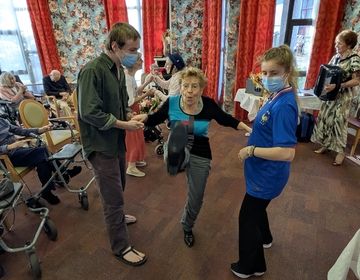California Girl in France : A Crisis of Fashion Identity
As much as I’d like to believe my travels have molded me into a worldly person who correlates aspects of my identity to various places in the world, I continue to find that, wherever I go, it is somehow obvious that I am a “California Girl.” Perhaps it is the abundance of “like”s that arise when I passionately tell a story, or perhaps the presence of “chill” and “hella” in my vernacular. When I inquire how someone could just tell that I was from California, they often refer to my evidently Californian fashion.
Fashion has always been an integral part of my identity. When I was young, I adored clothes, spending hours sketching outfits and dreaming that the fabrics and colors in my head could come to life. Shopping was my favorite weekend activity, dragging my mom to every store in the mall, thankful to have her attention amidst her arduous career.
As a woman today, it can be hard to feel pretty, to believe yourself to be beautiful. But when I look at myself in the mirror in an outfit I adore, my heart swells, and I feel happy in my own skin. To many, clothing is simply a requirement. For me, fashion shows the world who I am and, most importantly, is one of the few paths I have found towards self love.
However, when I arrived in Rennes, France for my semester studying abroad, fashion caused a bit of an identity crisis. In the United States, I am known as a bit of a fashion queen (by other people, not myself, I promise). But France is renowned for its superior fashion, so I feared that my love of fashion, a signature of my identity, would disappear amidst the universally impressive fashion of my French peers.
Sure enough, upon my arrival in Rennes, each day I fell in love with someone new, or more precisely their clothes. The elegant fur coats, the chic skirts, the precise layering, the beautiful scarves, the shoulder-padded blazers, the sophisticated monochrome color palettes, the stylish boots, the floor-length houndstooth trench coats, the luxurious berets, the cuffed corduroys, the surprising sexiness of tights under leather shorts. Mon Dieu.
Everyone looked so put together, their outfits elevated to a level Americans cannot reach – or, at least in my experience, are discouraged from reaching. Growing up in California, my vision of fashion did not align with that of my peers. With plaid skirts, thigh-high socks, and an abundance of dresses, my style was seen as too formal, girly, preppy. I was steadfast, refusing to change the essence of my style, sweatshirts and leggings not in my vocabulary, but I began to feel the weight of what is valued in Californian fashion. It is not stated outright, but I am a mathematically-minded person, and the ratio of compliments has indicated the importance of showing skin and looking hot (but in a I’m-not-trying-to-look-good-at-all-I-just-woke-up-this-way kind of way). My typical silhouette was too “extra.” Even when I adored my outfit, I felt self-conscious, and the dreaded question of “Why are you so dressed up?” ripped apart a bit of my confidence each time. Slowly I began to adjust my fashion, embarrassed to be dressed up, scared to be seen as “trying too hard.”
The French fashion norms had the opposite effect. Suddenly, I felt like my clothing was not enough, both figuratively and literally. I felt like my eye for fashion needed to be sharper, my outfits beautifully constructed masterpieces. And I felt like I was being judged for my California clothes, any showing skin feeling too revealing, over-sexualized. My American peers in the exchange program at University Rennes II have complimented my fashion, dubbing me “Chair of Fashion” (feels more professional than Fashion Queen, I like it). Yet I fear the judging thoughts tumbling inside the minds of the French. The Californian fashion ideals – that I had worked hard to adjust to for feeling out of place – were suddenly the reason I felt out of place in France.
So, the question became, what is my true fashion identity? Amidst all the influencing fashion cultures, where do I fit? Does my fashion voice even have something to say? And I think the answer lies in how French people’s individuality does not get lost among the commonality of beautiful clothes. Though each person is dressed with an air of elegance that French fashion tends to produce, there remains an expression of individual personality. Every place has a unique fashion atmosphere, and it is normal to adapt to the culture of every place you live. What is important is to nourish the soul of your fashion identity; to look in the mirror and see yourself, in your truest form, in clothes that make you proud to be you. Every morning, I am required to smile in awe at my outfit before I am allowed to walk out the door. I have adapted my fashion to this completely new culture I have found myself immersed in, yet I still feel like me – just a french-version of me.
Alexandra Hill
St. Lawrence University
Related Posts

At Home In France
When I came to Rennes for my study abroad, I thought my biggest lessons would come from my university classes—grammar, vocabulary, literature, all that. But honestly, some of the most... keep reading

Volunteering in Rennes
“You better hurry up, or we are going to get a timer.” A word to the wise: if you are wanting to volunteer at a retirement home in France, make... keep reading

Rugby in Rennes: Playing a Sport Abroad
As I was considering applying for my study abroad program in Rennes, one of my biggest concerns was whether I would fall behind in my sport while I was away... keep reading
